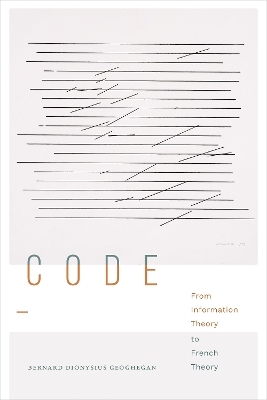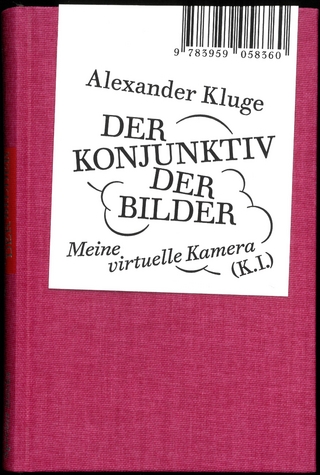
Code
From Information Theory to French Theory
Seiten
2023
Duke University Press (Verlag)
978-1-4780-1900-8 (ISBN)
Duke University Press (Verlag)
978-1-4780-1900-8 (ISBN)
Bernard Dionysius Geoghegan traces the shared intellectual and political history of computer scientists, cyberneticists, anthropologists, linguists, and theorists across the humanities as they developed a communication and computational-based theory that grasped culture and society in terms of codes.
In Code Bernard Dionysius Geoghegan reconstructs how Progressive Era technocracy as well as crises of industrial democracy and colonialism shaped early accounts of cybernetics and digital media by theorists including Norbert Wiener, Warren Weaver, Margaret Mead, Gregory Bateson, Claude Lévi-Strauss, Roman Jakobson, Jacques Lacan, Roland Barthes, and Luce Irigaray. His analysis casts light on how media-practical research forged common epistemic cause in programs that stretched from 1930s interwar computing at MIT and eugenics to the proliferation of seminars and laboratories in 1960s Paris. This mobilization ushered forth new fields of study such as structural anthropology, family therapy, and literary semiology while forming enduring intellectual affinities between the humanities and informatics. With Code, Geoghegan offers a new history of French theory and the digital humanities as transcontinental and political endeavors linking interwar colonial ethnography in Dutch Bali to French sciences in the throes of Cold War-era decolonization and modernization.
In Code Bernard Dionysius Geoghegan reconstructs how Progressive Era technocracy as well as crises of industrial democracy and colonialism shaped early accounts of cybernetics and digital media by theorists including Norbert Wiener, Warren Weaver, Margaret Mead, Gregory Bateson, Claude Lévi-Strauss, Roman Jakobson, Jacques Lacan, Roland Barthes, and Luce Irigaray. His analysis casts light on how media-practical research forged common epistemic cause in programs that stretched from 1930s interwar computing at MIT and eugenics to the proliferation of seminars and laboratories in 1960s Paris. This mobilization ushered forth new fields of study such as structural anthropology, family therapy, and literary semiology while forming enduring intellectual affinities between the humanities and informatics. With Code, Geoghegan offers a new history of French theory and the digital humanities as transcontinental and political endeavors linking interwar colonial ethnography in Dutch Bali to French sciences in the throes of Cold War-era decolonization and modernization.
Bernard Dionysius Geoghegan is Senior Lecturer in the History and Theory of Digital Media at King’s College London.
Acknowledgments ix
Introduction. Codification 1
1. Foundations for Informatics: Technocracy, Philanthropy, and Communications Sciences 21
2. Pattern Recognition: Data Capture in Colonies, Clinics, and Suburbs 53
3. Poeticizing Cybernetics: An Informatic Infrastructure for Structural Linguistics 85
4. Theory for Administrators: The Ambivalent Technocracy of Claude Lévi-Strauss 107
5. Learning to Code: Cybernetics and French Theory 133
Conclusion. Coding Today: Toward an Analysis of Cultural Analytics 169
Notes 181
Bibliography 221
Index 245
| Erscheinungsdatum | 15.12.2022 |
|---|---|
| Reihe/Serie | Sign, Storage, Transmission |
| Zusatzinfo | 47 illustrations |
| Verlagsort | North Carolina |
| Sprache | englisch |
| Maße | 152 x 229 mm |
| Gewicht | 386 g |
| Themenwelt | Naturwissenschaften |
| Sozialwissenschaften ► Kommunikation / Medien ► Medienwissenschaft | |
| ISBN-10 | 1-4780-1900-X / 147801900X |
| ISBN-13 | 978-1-4780-1900-8 / 9781478019008 |
| Zustand | Neuware |
| Informationen gemäß Produktsicherheitsverordnung (GPSR) | |
| Haben Sie eine Frage zum Produkt? |
Mehr entdecken
aus dem Bereich
aus dem Bereich
wie KI und virtuelle Welten von uns Besitz ergreifen – und die …
Buch | Hardcover (2023)
Heyne (Verlag)
22,00 €
meine virtuelle Kamera (K.I.)
Buch (2024)
Spector Books OHG (Verlag)
26,00 €


